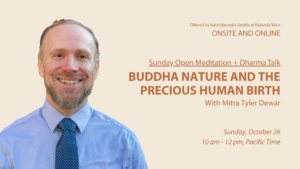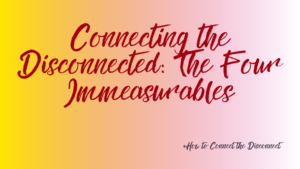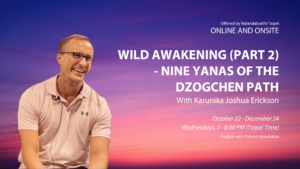Everyone is chiming in and taking sides on the slap heard ‘round the world. If you don’t subscribe to current events and haven’t turned over the rock under which this subject is found, here’s a quick replay of the hot topic that the virtual water cooler is humming about…
In short, Hollywood actor/comedian Chris Rock made a joke about fellow actor Jada Pinkett Smith’s hair, or lack there of. She has been suffering from alopecia, an immune disorder that results in random loss of hair. Jada Smith is married to Hollywood actor, Will Smith.
Immediately after the joke landed, Will Smith rose from his seat, walked up to the stage and slapped Rock across the face. He then returned to his seat and yelled at Rock to “keep his wife’s name out of his f#*@ing mouth”. Rock agreed to do just that. End of discussion.
Minutes later, Smith was awarded an Academy Award for his portrayal of the reportedly abusive father of tennis phenoms Venus and Serena Williams in the movie “King Richard”. Upon the announcement of the receipt of the award, the audience of Smith’s peers in attendance stood and applauded. Will Smith gave a visibly emotional/tearful speech.
And then the twitter-verse spun wildly. Memes were born. News notifications flashed across device screens. Heads hovered over glowing screens in cafes across the world as frantically typing fingertips weighed in heavily. Sides were taken, jokes emerged, past relations bubbled up, arguments rumbled, feelings got hurt, more arguments arose and so on and so on. The matter of one man’s response to another man’s “comedic” take of one woman’s appearance quickly became all of our business. All the world a stage; life imitating art.
If we unpack this incident and the social interest/response to it, we have a great opportunity to look directly at the human development of negative emotions and how we are ultimately not separate, as mere witnesses, to such sorrowful circumstances.
Passion, Aggression and Ignorance. Do you know these three? They are taught to be the root cause of our negative emotions, our kleshas. There is great opportunity to examine these three when a mass response to pop-culture phenomena arises. And you may have noticed that mass responses have been on the uptick. We have been offered a lot of opportunities lately to share opinions and take sides. Taking sides is, yes, an opportunity to utilize our freedom of speech and constitutional rights, but there is nothing political or biased about Buddha Nature. Buddha Nature doesn’t have a side.
If we want to exercise our right to free speech and choose to use harsh words or insulting tones, we should be prepared to face the results. And if we choose to exercise our right to defend our “self” through physical aggression when we feel insulted or harmed, we should certainly expect some result. Likewise, if we choose sides, we should expect the other side to respond. That’s sort of a fundamental understanding. But when we choose to ignore the fundamentals of cause and effect, we are also censurable.
The root downfall of ignorance can be slippery. Since we seem to be inundated with stimulus and information in these troubled times, we can be easily swayed to look away. When we consciously look away from any one side, however, we fail to recognize the wholeness or nature of the phenomena we are relating with. Perhaps in those instances its better not to look at all. But if we happen upon a phenomena or it happens upon us, we don’t have a choice in the matter. We see what we see right there in front of us. If we see something and choose only to see one side, that is ignorance. If we choose to look at something but choose only one side, that is also ignorance.
When we cling to the one side, we can easily become impassioned. Being “passionate” for a cause that aims to help sentient beings is not bad, but if we are clinging to our ideals and preferences, passion can take over. When passion takes over, we ignore anything other than what we are passionate about, or what we prefer.
When our preferences become so important to us that we begin to cause harm through our words or actions, we have hit the end point. The result of having allowed any of the three poisons to intoxicate a single moment of our experience is simply harm caused to ourselves and/or others. This is a cycle of pain and suffering.
So what’s the remedy? The remedy is to not look away, to not disengage with the world and its pains. The remedy is to not convict our “self” to passionate ideals and morals. The remedy is to vow not to cause harm. Instead, be equal; see all sides of every experience. Investigate phenomena. Stay silent if you must, but keep looking.
“Our suffering originates in our false belief in a truly existent, permanent self. This fixation is the basis for the arising of certain mental afflictions, or destructive emotions, called the “three root poisons”: passion, aggression, and ignorance. From these three poisons, we experience the development of further negative emotions and all aspects of suffering. Since these poisons result from ego-clinging, the root of all our suffering is our ego-clinging.”
— Dzogchen Ponlop Rinpoche
So…don’t take your “self” so seriously! Easier said then done, perhaps, but it might be fun to take a crack at it.

(Karunika) Colleen Paul is a very fortunate recipient of Dharma teachings. She has been a member of Nalandabodhi International since 2009 and is a student of Dzogchen Ponlop Rinpoche. Colleen received a Masters degree in Psychology; Contemplative Psychotherapy from Naropa University. She is a licensed mental health counselor and enjoys looking at her mind while in the company of others who are interested in, aspiring to or actively doing the same.






